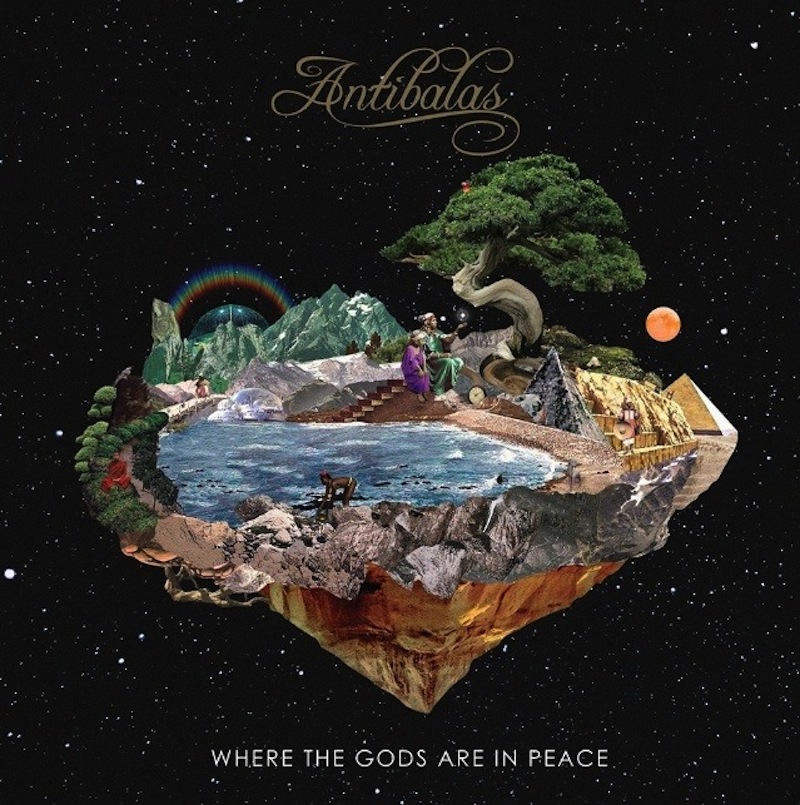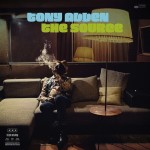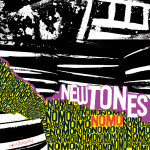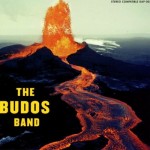Antibalas : Where the Gods Are In Peace

The purpose of groove is to tap us into something deeper than the rational mind. Studies have found that repetitive rhythms trigger a trance-like state; this is tied deeply to the ecstasy of dance music and great mixes, where everything flows and builds to some greater end. It’s also been the foundational block for whole worlds of music that exist outside the melody-driven world of pop.
Good Afrobeat is incredibly hard to write about. The stacks of guitars, horns, drum kits, percussions, what feel like whole choirs of vocals, organs wailing and everything functioning in one giant, heavily-knotted call-and-response is designed to undermine the rational mind, to dig grooves so deep you slip into the caverns below the earth and disappear into the darkness of dance. There is an ecstasy and a fervor here that is undeniable. If you can play this and not move your ass, you aren’t paying attention.
Afrobeat sometimes gets sterilized by both purists and historians. The ties to western art music through the influence of Brian Eno and Talking Heads and skipping through history in that world reduces it sometimes to an influence, something taken from but not a thing on its own, an ingredient and not a dish. Likewise, playing it too safe can leave the music sanitized, sexless, without the sweat and grime and ass-shaking groove that compels it. Afrobeat is derived from jazz, sure, but it’s also derived from James Brown-style R&B, from Sly Stone funk. It demands a body to it. Fela Kuti may have designed it to be political by nature, but politics need a body to become real.
Antibalas succeeds in spades on this mark. Long songs abound, the shortest of which clocks in at over 8 minutes, but there’s never a dull second on new album Where The Gods Are In Peace. That’s because, like any great well-oiled big band in the jazz and funk settings, they lean hard into rhythm and let that compel the proceedings. It’s a tricky thing, arranging for such enormous bands, but by letting each player play a micro rhythm which eventually knits together with all the others into the grand tapestry of the song, it gives the band tons of permutations to work with, muting some players, giving others solos, having a handful change up their patterns while other sections roar back from silence. They repeat central rhythms and melodies enough that the songs never feel lost in their explorations, but they improvise enough that it never becomes predictable.
What keeps it moving is the persistent and unbroken groove. A great groove is a powerful thing; it reduces the mind to rubble, leaving the listener psychically susceptible to words and thoughts in a way unparalleled by any other method. This is why they play songs in churches and why you feel like you are touching the fabric of eternity in concert halls. It’s one of the key elements that represents the shift from orchestral music to contemporary music—the R in R&B. Antibalas delivers not just ecstatic and compelling performances, but also supernaturally incredible and absolutely miles-deep grooves.
This album is a drill to the brain in the best way possible. Antibalas does the very best thing, which is present a set of songs and grooves that frustrate language and our ability to capture the feeling and success of them in words. What matters: This album is a wicked success, and a powerful reminder of the continued power of this kind of music not as a mere ingredient to other work but as a thing unto itself.
Similar Albums:
 Tony Allen – The Source
Tony Allen – The Source
 Nomo – New Tones
Nomo – New Tones
 Budos Band – Budos Band
Budos Band – Budos Band
Langdon Hickman is listening to progressive rock and death metal. He currently resides in Virginia with his partner and their two pets.

